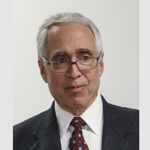Make It Easier to Say ‘YES’
![]()
t's official: According to the Brookings Institution's Presidential Appointee Initiative, the Bush administration is slower than any administration in modern history to fill the top political jobs in government. The average Bush administration appointment has taken eight-and-a-half months. The process took just over two months during the Kennedy administration.
The news is hardly surprising. Every appointments process since 1961 has been slower than the one before it, and none has faced the mix of stalemate, intrigue and national crisis that followed the 2000 election. As if the truncated transition and the initial 50/50 split in the Senate didn't create enough hurdles, the June 2001 switch in Senate control and the Sept. 11 attacks added an entirely new mix of confusion and urgency to the process-which is unwieldy under the best of circumstances. These were among the worst.
It is a near miracle that Bush's average appointment takes just 10 days longer than Clinton's. Had the Clinton administration faced the same obstacles, its average could have been a year or more.
Nevertheless, the White House bristled at the news of its dubious distinction. "We made nominations to the Senate as fast as any other administration since the introduction of the new ethics laws in the late '70s," says Clay Johnson, director of presidential personnel.
Johnson is right that the Bush administration did everything it could to keep the process moving. In raw numbers, his team nominated more people to office than any administration in history. But by that measure, basketball teams would get extra points for taking more shots. Submitting nominations is not enough to guarantee success. The Bush administration had more jobs to fill, and its nominees had more paperwork to complete. To rephrase candidate Bill Clinton's famous 1992 campaign mantra, "It's the process, stupid."
Just imagine the worst possible process for getting an executive team in place quickly.
It would require candidates to provide reams of details about their personal and financial histories, most of which would bear absolutely no relationship to their appointments. The financial questions would be so complex that many nominees would need help just filling out the forms. And the personal questions would be so embarrassing that some candidates might withdraw lest they be pilloried in the press for a traffic fine or grilled by the Federal Bureau of Investigation for not knowing their mother-in-law's birth date.
The list of 200 questions would include two zingers invented by the White House: "Do you know anyone or any organization that might take any steps, overtly or covertly, fairly or unfairly, to criticize your appointment?" and, "Is there any other information, including information about other members of your family, that could be considered a possible source of embarrassment to you, your family, or the president?" Frankly, any candidate who would answer such questions is probably too timid to hold office.
This worst-case process would continue with an executive branch vetting that would mostly rely on retired FBI agents to check every answer, interview every neighbor and trace each candidate's history back 15 years. Candidates who've been through the process before might expect smoother sailing, but they would actually be more closely scrutinized. The FBI would compare the information on their new forms with what they said the first time around.
Once through the executive branch, the nominee would enter a Senate confirmation process that would defy all logic. Not only would this stage involve an entirely new set of forms and questions, but every candidate would be subject to a committee hearing. Senators, even members of the president's own party, would have the power to stop or delay a nomination even on a personal whim. There would be no rules requiring up-or-down votes within a reasonable amount of time, and much of the personal information collected by the White House would be displayed for the entire country to see.
This hideously exhausting process is not imaginary at all. With its origins in past scandals and petty disagreements, it's what we've got today. The president could streamline the White House process with a word to his staff and an executive order to simplify the forms. And the Senate could speed up confirmations by limiting discretionary delays by individual members. But neither branch seems the least bit motivated to pursue reform. The White House has yet to endorse legislation to streamline the financial disclosure process for its appointees, and the Senate has yet to show any interest in an agreement to bring nominations to a vote.
But there might be one way to convince them to act. Make all 535 members of Congress and the president undergo the presidential appointments process they have created. Perhaps then they would get the point. The way to recruit a talented executive team is to make it easier to say "yes"-not "no."
Paul C. Light is a professor at New York University's Wagner School of Public Service and director of the Center for Public Service at the Brookings Institution.
NEXT STORY: The Nonprofit Example







